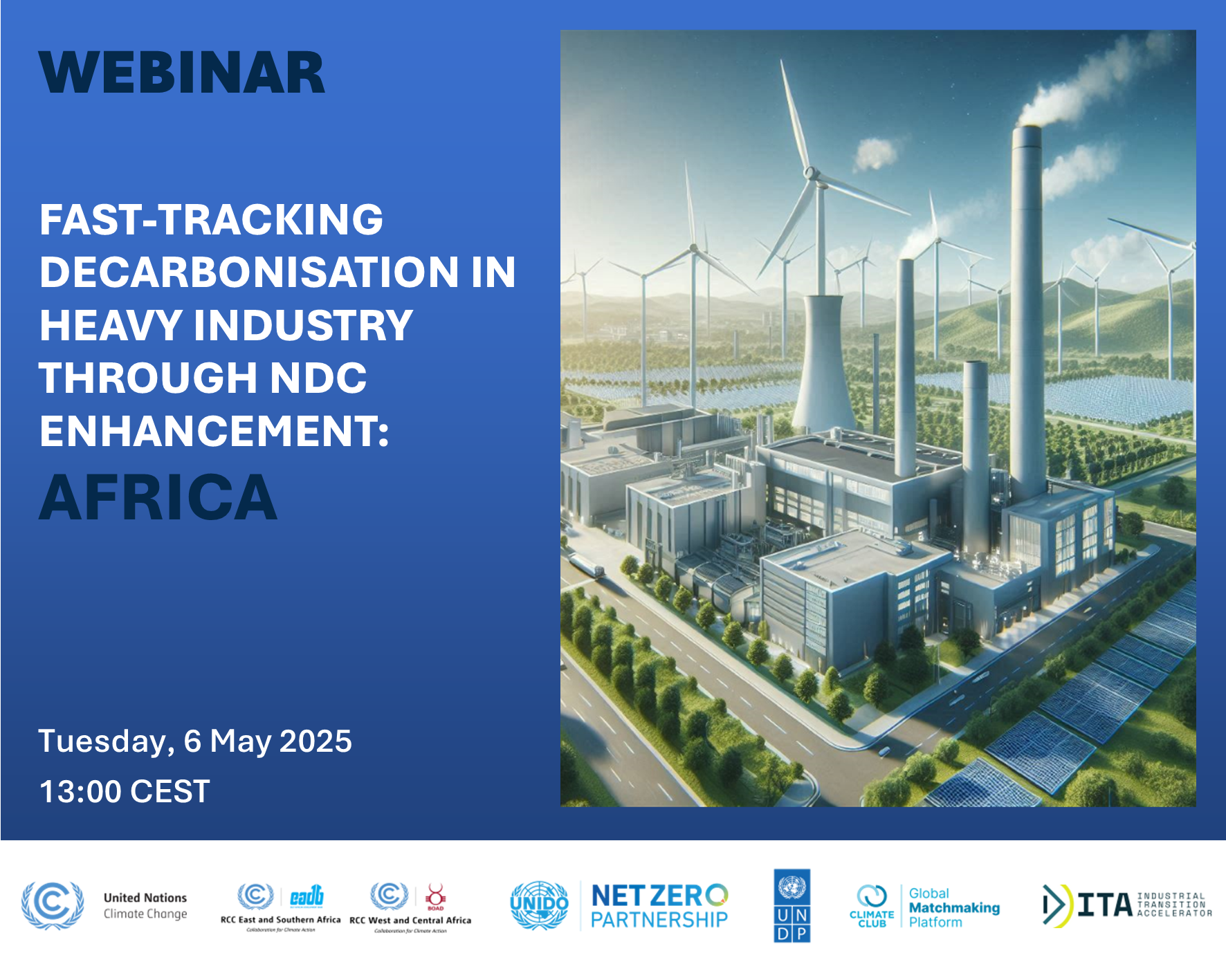Background
Limiting global warming to no more than 1.5°C – as called for in the Paris Agreement – requires global emissions to reach net-zero by 2050. This will require all sectors of the economy to decarbonise. Heavy industry and transport sectors (i.e. aluminium, cement, chemicals, steel, aviation and shipping) account for nearly 30% of global energy and process emissions. Beyond that, these emissions are expected to grow, as demand for these services and products increases.
Investment decisions on a fleet of deep decarbonisation projects will need to be taken within the next two years in order to stay on track for a 1.5oC net zero aligned scenario. Because the investments necessary are capital intensive and require long payback times, developing long-term policy frameworks is key to providing investment certainty.
By incorporating specific targets for industrial decarbonisation within their NDCs and LT-LEDS, governments provide clear policy signals that drive innovation and investment in clean technologies in these sectors. This not only accelerates the transition towards a low-carbon economy but can also foster the development of green industries, creating new jobs and economic opportunities.
Ambitious industrial decarbonisation targets within NDCs are essential for aligning short-term climate action with the long-term goals of the Paris Agreement, ensuring that national efforts contribute effectively to the global pursuit of net-zero emissions. Yet, less than 40% of Parties have incorporated industry-specific references and targets in their NDCs, with the majority of these references focusing on energy efficiency improvements which are not enough to achieve net-zero.
Africa's abundant renewable resources, such as solar, wind, and hydropower, provide a great basis and a competitive advantage for green industrial development. Industrial decarbonisation not only mitigates climate risks but also unlocks substantial economic opportunities, including job creation (e.g. in clean energy, sustainable agriculture, and green manufacturing), technological innovation, and increased competitiveness in emerging green markets. By embracing technology leapfrogging and industrial decarbonisation, Africa can position itself as a leader in sustainable development, attracting financing and driving economic growth while protecting its environment and communities.
Objectives
This event intends to:
1) raise awareness on the importance of industrial decarbonisation for achieving the Paris agreement’s goals and its overall feasibility.
2) demonstrate the value of integrating industrial decarbonisation into NDCs and LT-LEDS.
3) facilitate collaboration between governments and relevant regional stakeholders to expedite the inclusion of industrial decarbonisation in NDCs and LT-LEDS.
Registration - FAQ
How to register?
To register, please click on the "Register now" button on the top left corner of this page.
Once you have completed and submitted the registration form you will receive a confirmation email.
How can I access the online event?
The access link for the online event can be found in the confirmation email. The email is sent from the folowing account: Indico.UN <noreply@un.org>.


